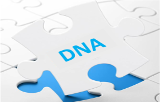
DNA transfection
DNA Transfection reagents are essential tools in molecular biology, allowing the introduction of foreign DNA into cells. This process, known as transfection, is a powerful analytical tool that enables the study of gene functions and gene products in cells. Various strategies, including biological, chemical, and physical methods, can be employed for transfection.
Chemical transfection methods, for instance, facilitate cross-membrane transport of DNA using Ca 2+ phosphate, polycations, or dendrimers. The optimal transfection method is chosen based on factors such as the type and origin of cells and the form of introduced DNA.
The successful delivery of genetic material into cells depends on the quantity and quality of the DNA, incubation time, and the ratio of transfection reagent to DNA. Advancements in life science technology now enable the transfection of various types of DNA into mammalian cells




